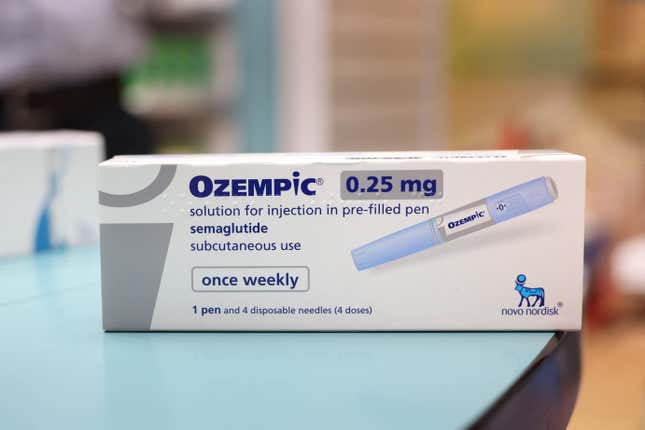
It’s not only food CEOs who need to worry about their bottom lines thanks to in-demand weight loss drugs like Ozempic. Big Tobacco and Alcohol have reason to fret, too.
A new report from Morgan Stanley finds that people using GLP-1 drugs — among them Ozempic, Wegovy, Mounjaro, and Zepbound — reduce their consumption of tobacco and alcohol while taking the medications. GLP-1s are a class of diabetes and weight loss drugs that have recently caught fire (and blown up sales numbers) for their ability to suppress a user’s appetite.
The investment bank also surveyed about 300 GLP-1 users about their consumption habits while taking the medication. Analysts at the bank have previously cautioned that the growing use of GLP-1s will put some longterm pressure on fast food sales, as users have reported spending less money at restaurants. But their survey also finds that users are reducing their intake of tobacco and alcohol.
Could weight loss drugs help users smoke or drink less?
While 40% of survey respondents said they smoked cigarettes at least weekly before starting a GLP-1 treatment, that number fell to 24% after they started the treatment. Meanwhile, weekly e-cigarette usage dropped from 30% of respondents to 16% after they started taking a GLP-1.
Morgan Stanley found similar results when it asked respondents about their use of alcohol. About 56-62% of alcohol consumers on GLP-1s reported drinking less alcohol since starting the medications, with about 14-18% cutting their alcohol consumption entirely.
The analysts noted they were “cautious about drawing conclusions” from their survey about the impact of GLP-1 drugs on addictive behaviors. But there has been anecdotal evidence from patients and health care providers that suggests GLP-1s can help users curb their addictions to alcohol and tobacco. While research hasn’t yet proven a causal link between the two, clinical trials are currently underway to better understand the effects of GLP-1’s on alcohol and tobacco consumption.
In addition, Morgan Stanley anticipates the GLP-1 frenzy isn’t slowing anytime soon. global market for GLP-1 drugs will reach $105 billion by 2030. It also projects these drugs will be adopted by about 31.5 million people in the U.S. (or about 9% of the nation’s population) by 2035.
This article originally appeared on Quartz.




















+ There are no comments
Add yours